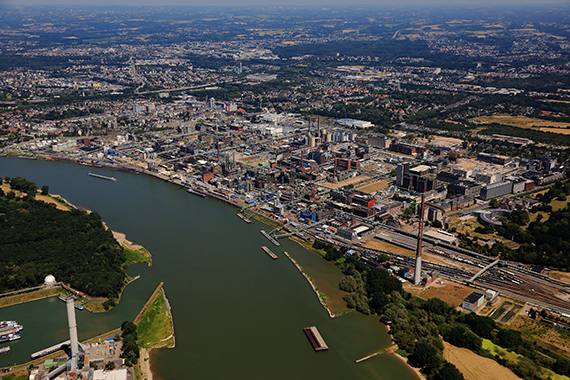More news
- Asian paint regulatory round up – Indonesian exterior paint still uses lead, warns W...
- Nigeria’s paint industry navigates regulatory changes and economic challenges amid p...
- Focus on the global coatings market: Global coatings market outlook
- Ask Joe Powder – October 2024
- Chinese paint majors look to domestic consumer sales as commercial real estate slumps

Covestro has now received the internationally recognised ISCC Plus mass balance certification for its Leverkusen and Dormagen sites. Together with the Krefeld-Uerdingen site, which was already certified a year ago, the company can now supply its customers with large product volumes from renewably attributed raw materials from all three Lower Rhine sites in Germany. These are selected polycarbonates, components for polyurethane (PU) rigid and flexible foams, PU coating and adhesive raw materials, thermoplastic polyurethanes (TPUs) and speciality films. They are characterised by equally good quality and properties as their fossil-based counterparts.
"I am very pleased that we can now offer our customers even more certified mass-balanced products and thus help them even better to achieve their sustainability goals and drive the transition to a circular economy," said Sucheta Govil, Chief Commercial Officer of Covestro. "In doing so, we are also supporting the use of alternative raw materials and reducing CO2 emissions along the value chains."
Dr Klaus Schäfer, Chief Technology Officer at Covestro, added: "The raw materials we use for these products meet the high sustainability requirements of the ISCC Plus standard all the way back through the supply chain. That’s why we want to make greater use of alternative raw materials such as these renewably attributed precursors in our production. In addition to the three German sites, also our plants in Antwerp and Shanghai are already ISCC Plus certified, with more sites to follow."
In the mass balance approach, bio-based or recycled raw materials – in this case reprocessed residual materials – are fed in at an early stage of raw material extraction and mathematically attributed to the finished products. This saves fossil raw materials and reduces greenhouse gas emissions, while the quality of the mass-balanced products remains the same compared to purely fossil-based ones. Manufacturers can continue to use their proven formulations, equipment and processes.
ISCC ("International Sustainability and Carbon Certification") is an internationally recognised system for sustainability certification of biomass and bioenergy, among others. The standard covers all stages of the value chain and is widely used worldwide. ISCC Plus includes further certification options for technical-chemical applications, among others, including plastics from biomass.



